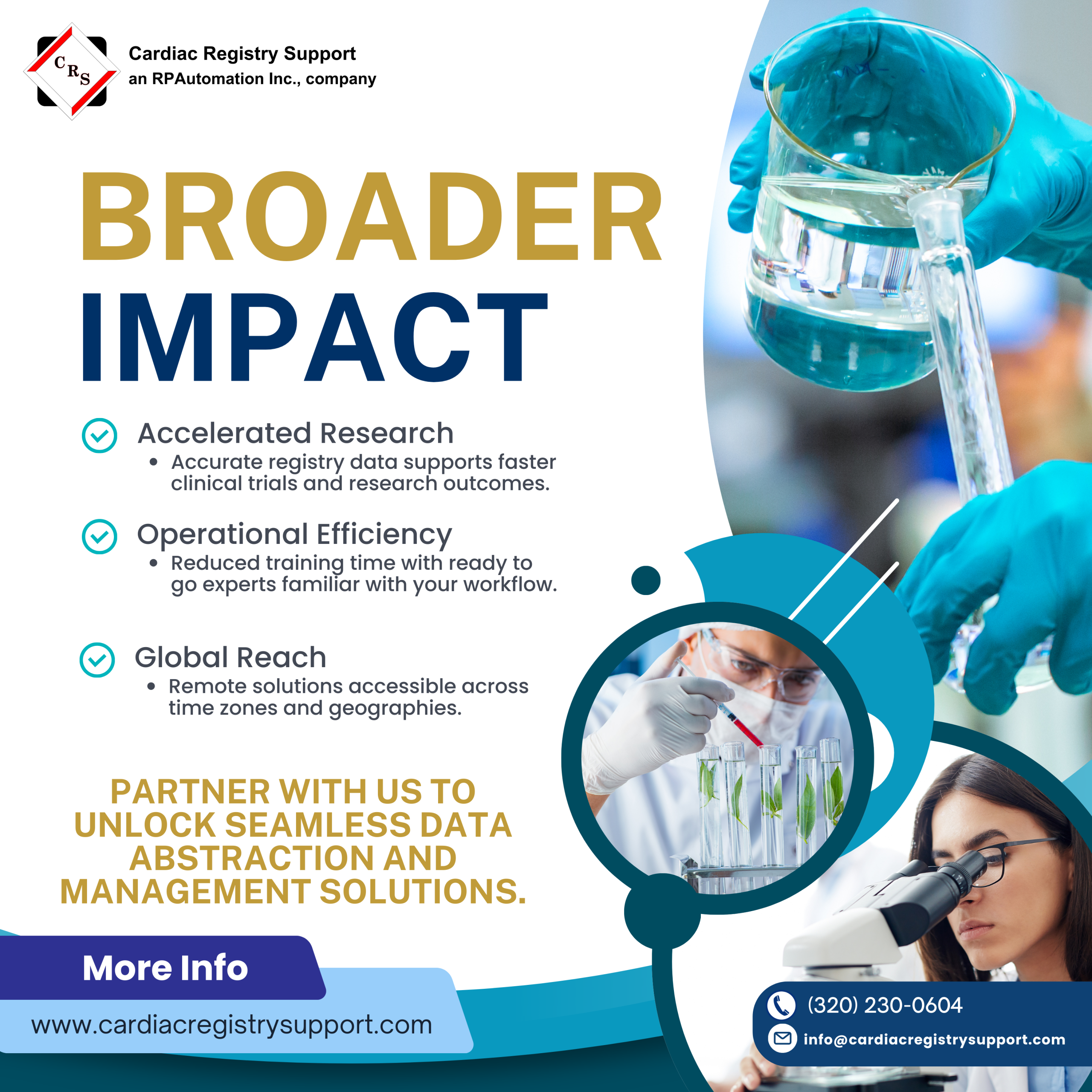In today’s healthcare landscape, data abstraction plays a critical role in ensuring hospitals meet regulatory requirements, improve patient outcomes, and optimize operational efficiency. However, the growing complexity of clinical registries, compliance standards, and data management has led many hospitals to outsource data abstraction to expert third-party providers.
With industry leaders like Cardiac Registry Support and Quality Health Data setting the standard for outsourced data abstraction, hospitals are realizing the cost, quality, and efficiency benefits of making the shift. But why is outsourcing becoming the preferred solution? Let’s explore.
What Is Data Abstraction, and Why Is It Essential?
Clinical data abstraction involves extracting, analyzing, and submitting patient data to registries such as:
 The American College of Cardiology (ACC)
The American College of Cardiology (ACC)
 The Society of Thoracic Surgeons (STS)
The Society of Thoracic Surgeons (STS)
 The Centers for Medicare & Medicaid Services (CMS)
The Centers for Medicare & Medicaid Services (CMS)
Accurate and timely data abstraction is crucial for:
 Hospital performance benchmarking
Hospital performance benchmarking
 Quality improvement initiatives
Quality improvement initiatives
 Compliance with accreditation bodies
Compliance with accreditation bodies
 Enhanced patient care and research
Enhanced patient care and research
The Challenges of In-House Data Abstraction
Traditionally, hospitals have relied on internal teams for data abstraction, but this approach presents several challenges:
 Time-Intensive Workload – Manually abstracting patient data requires specialized skills and extensive time, pulling staff away from direct patient care.
Time-Intensive Workload – Manually abstracting patient data requires specialized skills and extensive time, pulling staff away from direct patient care.
 High Operational Costs – Hiring, training, and retaining skilled data abstractors is expensive, especially with increasing demand for quality reporting.
High Operational Costs – Hiring, training, and retaining skilled data abstractors is expensive, especially with increasing demand for quality reporting.
 Risk of Errors & Non-Compliance – Inconsistent abstraction can lead to inaccurate data submissions, affecting hospital rankings and reimbursements.
Risk of Errors & Non-Compliance – Inconsistent abstraction can lead to inaccurate data submissions, affecting hospital rankings and reimbursements.
With these challenges in mind, outsourcing data abstraction has emerged as a cost-effective, scalable, and quality-driven solution.
Why More Hospitals Are Outsourcing Data Abstraction
1. Increased Accuracy & Compliance
Companies like Cardiac Registry Support utilize AI-driven technology and highly trained abstraction specialists to ensure precision and compliance with registry requirements.
 Automated workflows reduce human errors
Automated workflows reduce human errors
 Expert teams stay updated on evolving registry guidelines
Expert teams stay updated on evolving registry guidelines
 Improved data integrity leads to better hospital performance metrics
Improved data integrity leads to better hospital performance metrics
2. Significant Cost Savings
Outsourcing eliminates the need for full-time in-house staff, reducing overhead costs such as:
 Salaries & benefits
Salaries & benefits
 Training & certification expenses
Training & certification expenses
 Software & compliance monitoring
Software & compliance monitoring
Hospitals can reallocate budgets toward patient care improvements while ensuring top-quality data abstraction.
3. Scalability & Flexibility
Outsourced data abstraction providers offer on-demand services tailored to fluctuating hospital needs. Whether handling high-volume patient records or specialized registry submissions, outsourcing ensures hospitals can scale operations without hiring additional staff.
4. Reduced Staff Burden & Improved Care Delivery
By outsourcing data abstraction, hospitals allow their in-house clinical teams to focus on:
 Direct patient care instead of administrative tasks
Direct patient care instead of administrative tasks
 Clinical quality improvement initiatives
Clinical quality improvement initiatives
 Registry participation without overwhelming staff
Registry participation without overwhelming staff
How to Choose the Right Outsourcing Partner
When selecting a data abstraction partner, consider:
 Expertise in Your Required Registries – Ensure the provider specializes in ACC, STS, CMS, and specialty registries.
Expertise in Your Required Registries – Ensure the provider specializes in ACC, STS, CMS, and specialty registries.
 Compliance & Accuracy Track Record – Verify their quality assurance processes and adherence to regulatory standards.
Compliance & Accuracy Track Record – Verify their quality assurance processes and adherence to regulatory standards.
 Scalability & Customization – Look for flexible services tailored to your hospital’s unique needs.
Scalability & Customization – Look for flexible services tailored to your hospital’s unique needs.
Final Thoughts: The Future of Data Abstraction in Healthcare
By making the shift, hospitals can enhance accuracy, reduce costs, improve patient care, and streamline operations—ensuring long-term success in an ever-evolving healthcare landscape.
 Ready to optimize your hospital’s data abstraction process? Learn how Cardiac Registry Support can help you maximize efficiency and compliance today. Visit www.cardiacregistrysupport.com for more insights.
Ready to optimize your hospital’s data abstraction process? Learn how Cardiac Registry Support can help you maximize efficiency and compliance today. Visit www.cardiacregistrysupport.com for more insights. 


